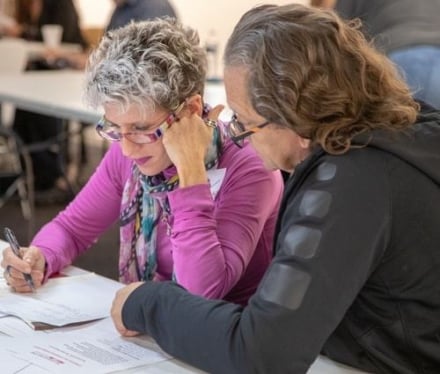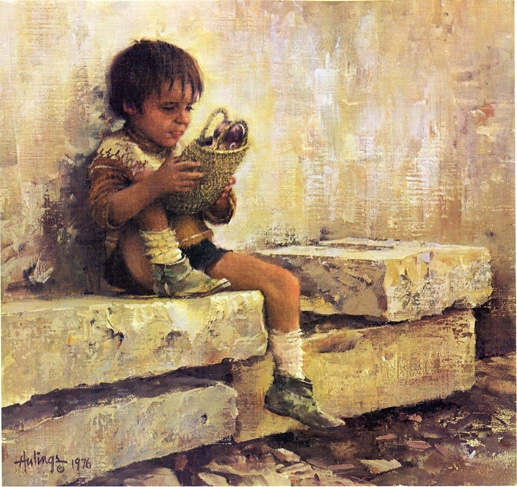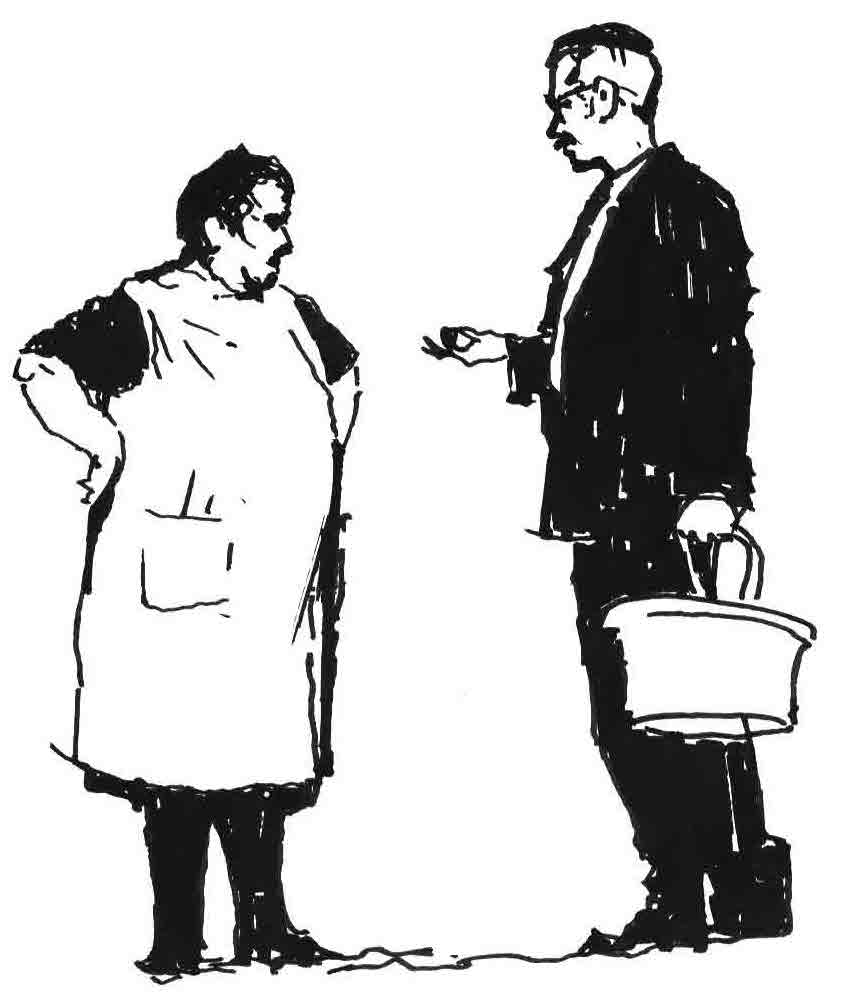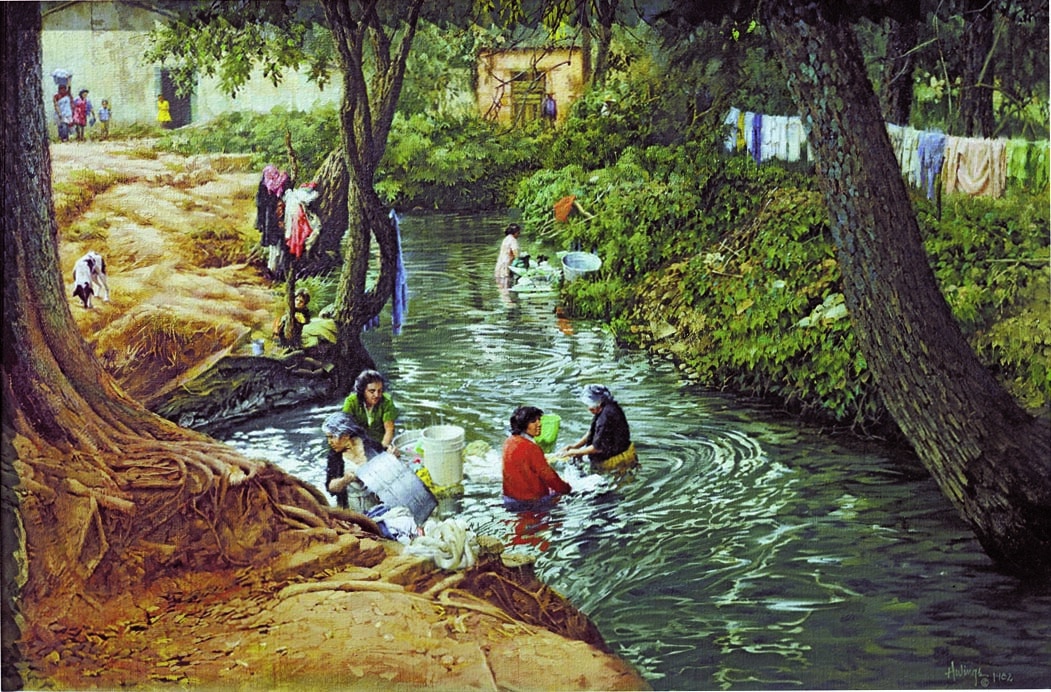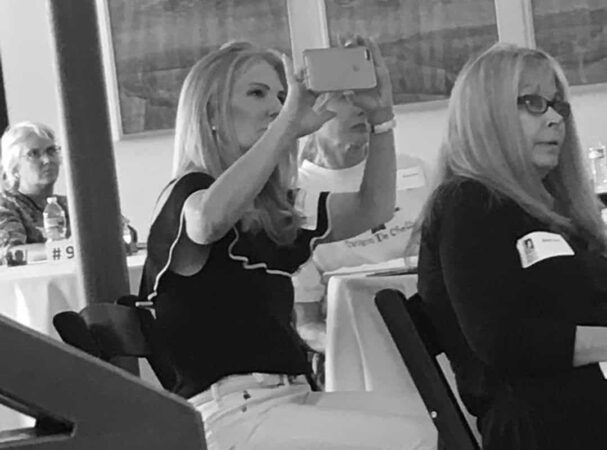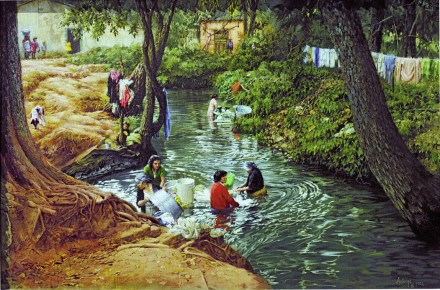
Working in the arts comes with some pretty fantastic perks, not the least of which is being surrounded by incredible professionals doing incredible things. We are a community, a word that’s derived from the Old French comunité and Latin communitatem, which means “everybody,” or “society, friendly intercourse, affability.” A spirit of togetherness runs through the word, both in its history and use.
As I begin to notice this word in print, I also spot other related words, such as “comfort” (also derived from Old French), a “feeling of relief” that can certainly be obtained from our communities. Similarly, “commit” (Latin) is to “unite, connect, or combine.” Our communities unite us. Our challenges unite us. Our successes unite us.
This unifying theme also exists in many words that extend to business settings. “Commission” (Latin) is “authority entrusted to someone,” and the commissioning of a work can build community between unrelated parties, such as a commissioner and an artist. Before “commodity” (Middle French) evolved to mean a convenient or useful product, the word meant a benefit. A “company” (Old French) is a “large group of people, a society, or a friendship.” And “competition” (Latin) began as a “contest for something, a rivalry”; only later did it become a noun to describe those against whom we compete.
All of these words speak to the fact that knowledge and expertise are most useful when shared with a community. In isolation, their impact is lessened. The common nature of these themes reflects both our craving for community and our need to describe it–along with its absence.
We “communicate” information by expressing our thoughts and ideas, but words are not the only tool for communicating. Our art can do that too. Art and business transcend language to make a “common” point–one that is understood by all. By recognizing that business and art share the same foundation, the two seem less divergent. We can embrace their common root by blending creativity and community into the way we manage our studios.
Creativity and Community Improve the Budgeting Process
There are many creative ways to plan financially, and ensure that our creative, personal, and professional goals are being met. In fact, the best budgeting processes begin with goals.
The first step is identifying your budget’s parameters. What are you budgeting? What is the time frame? What is the budget’s goal? As long as it connects to something that matters to you–whether it’s within your studio practice, or your life more broadly–the budget shares a common foundation with your creativity. It exists to support your creativity, rather than oppose it.
Common ground–any common ground–can be the foundation on which to collaborate in support of a shared goal, big or small. Our families are communities because we share a history, and sometimes DNA. Our friends form a community based on shared interests and experiences. Our colleagues make up a community because of shared appreciation, shared knowledge, and sometimes shared values. By acknowledging the value of community, both in business and creativity, we can take concrete steps to prioritize this value within our budgets.
The second and third steps in the budgeting process involve listing the expenses that relate to the parameters you identified in step one, and quantifying them (usually with a long break between steps two and three).
It’s easy to list the obvious expenses such as studio rent, utilities, supplies, insurance, marketing, and web hosting, but once you starting thinking about community, you identify additional potential expenses. Should you pay to participate in certain organizations, professional communities, at a national or local level? Should you include the cost of attending certain events in support of your community? Should you share meals or coffee with members of your community to foster and cement that bond? Should you purchase the work of others as a way of contributing to the community? What about collaborating on promotional endeavors? Should you attend classes to build a community of learners? By including these line items in your budget, you are aligning our communal values with your financial expenditures.
Our communities can also make the budgeting process easier. We don’t have to rely solely on our own knowledge and experience to make value judgments about expenditures. We can ask questions that draw upon the community’s shared expertise to inform our choices. Is membership in a particular organization worthwhile? Did others derive value from a particular marketing strategy? Did they have success at that festival last year? Would they want to split the cost of a booth?
We can even harness this common expertise to improve our budgets in a more direct way–by starting a budgeting group of four or five artists who can help keep each other on track when it comes to building, editing, and sticking to their budgets. A set of fresh eyes on a budget can be a source of creativity. What have you forgotten to include? What optimistic assumptions have you made? How does your budget align with that of others within your community?
The Value of Community
Beyond creating a functioning budget, there’s an added benefit that derives from engaging with others on such matters. Supporting our creative community is good for our studios and businesses. Not only can such support inspire creativity–it also builds real personal connections, even when we are connecting around arduous tasks such as budgeting.
Engaging with our community can complement the work that we are doing, and fill us with good feelings. And in fact, the word “complement” (Old French) means to fill up. Community fills us up, fuels our creativity, and supports those around us (both literally and figuratively).
So as we embrace the end of this common year, one that has been full of worldwide ups and downs, let us embrace our shared community, and use it to our shared financial advantage. Let’s remember that when solutions seem elusive, community can help complex conversations become simpler, competitors can become supporters, and divergent ideas can find common ground–even common financial ground.
FOR FURTHER READING
Artistic Budgeting podcast from College Art Association (January 2013). http://www.collegeart.org/podcasts/


